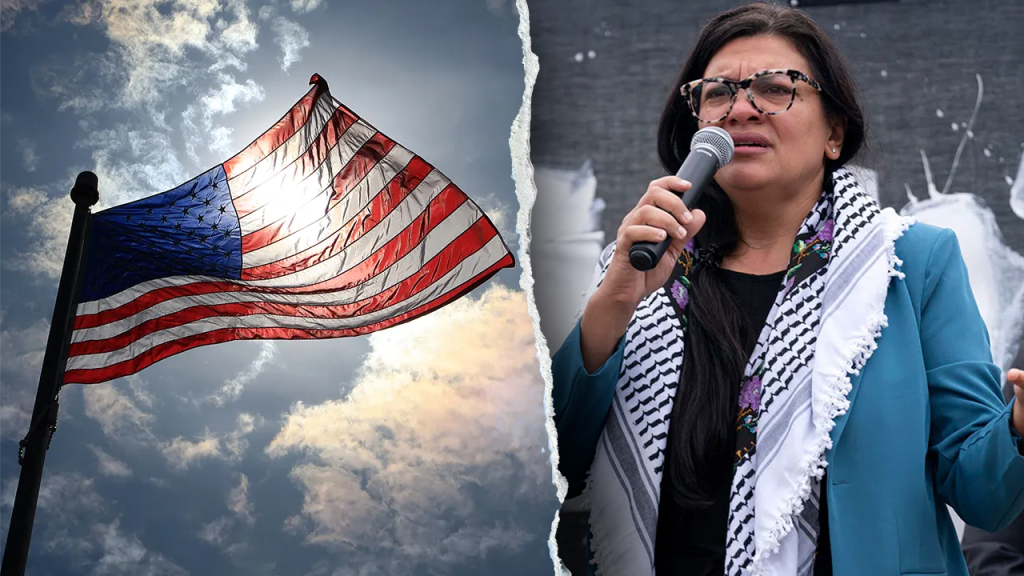Immigration, Assimilation, and Shifting American Identity: A Growing Concern
In the wake of controversial remarks by Representative Rashida Tlaib at a pro-Palestinian conference, where she harshly criticized America as a nation “built on slavery and genocide,” a deeper conversation has emerged about immigration policies and national loyalty. Simon Hankinson, a senior research fellow on immigration at the Heritage Foundation, has raised concerns that America’s relatively permissive immigration standards have inadvertently welcomed anti-American sentiments and fostered what he calls “ethno-politics” within our borders. This phenomenon, he suggests, threatens the traditional American principle that citizens—especially elected officials—should hold undivided loyalty to the United States.
The concept of divided national loyalties isn’t merely theoretical. When new citizens take their naturalization oath, they explicitly “renounce all allegiances to foreign potentates or rulers,” yet Hankinson notes that enforcement of this principle has weakened significantly over recent decades. The U.S. government has become increasingly tolerant of dual nationality, rarely requiring individuals to surrender foreign citizenships except in extreme cases, such as when someone assumes high office in another country. This shift represents a dramatic departure from America’s historical approach to citizenship, which emphasized singular national loyalty. Hankinson points specifically to the Immigration and Nationality Act of 1965 as a pivotal moment that “essentially opened up immigration to the entire world” and fundamentally altered America’s demographic landscape. With this change came not only new Americans but also the importation of longstanding international conflicts and grievances that, without proper assimilation, can persist for generations.
The consequences of these policy shifts are increasingly visible in American political discourse. Representative Tlaib’s fiery speech at the “People’s Conference for Palestine” in Detroit exemplifies this trend. Her remarks not only criticized Israeli policies but also characterized the United States as an “empire” with foundations of “slavery and genocide and rape and oppression.” She went further, drawing direct parallels between Israel’s actions in Gaza and domestic American policies, suggesting that “what our government is willing to do to Palestinians, they are willing to do to all of you.” Such rhetoric from an elected representative represents what Hankinson considers a dangerous trend of lawmakers openly questioning America’s foundational legitimacy rather than merely critiquing specific policies. Similarly concerning statements have come from other progressive lawmakers, including Representative Delia Ramirez, who declared herself “a proud Guatemalan before I’m an American,” and Representative Ilhan Omar, who once suggested that America under former President Trump had become “one of the worst countries” in the world.
At the heart of this issue lies a fundamental disagreement about the nature and importance of assimilation. Hankinson laments that for many progressives, assimilation has become “a dirty word,” rejected as an outdated, even oppressive concept. Yet he defends its value, defining true assimilation not as the erasure of cultural heritage but as the process through which immigrants, while maintaining their roots, develop “a common understanding of what the United States is and what it means to the world.” This includes learning English, understanding American history, and fundamentally appreciating that, despite its flaws, America remains “a great country.” Without this assimilation, ethnically concentrated enclaves can form where individuals remain more strongly identified with their ancestral cultures than with America, potentially prioritizing international concerns over the immediate needs of their American constituents.
The emergence of ethno-politics poses significant risks to American social cohesion. Hankinson warns that the United States could follow the path of countries like Lebanon, India, Pakistan, or various African nations where ethnic and tribal disputes have hampered economic, political, and social progress. The American experience has largely avoided such divisions historically, but the current political climate threatens this exceptional achievement. In Hankinson’s view, progressive multiculturalism contributes to this danger by suggesting that America is merely “some place that [immigrants] park while they make money and take care of their lives, but their loyalty remains outside.” This perspective stands in stark contrast to the traditional American expectation that citizens would gradually develop a primary identification with their new homeland.
The debate over immigration, assimilation, and national loyalty continues without clear resolution. When Fox News Digital approached the White House about potentially supporting stricter policies mandating sole loyalty to the United States for citizens and lawmakers, they declined to comment. Similarly, Representatives Tlaib, Omar, and Ramirez did not respond to requests for comment on their statements. As America continues to navigate its complex identity as both a nation of immigrants and a unified republic, questions about the proper balance between cultural pluralism and national cohesion remain contentious. What seems clear, however, is that how we resolve these tensions will significantly shape America’s future social and political landscape for generations to come.


